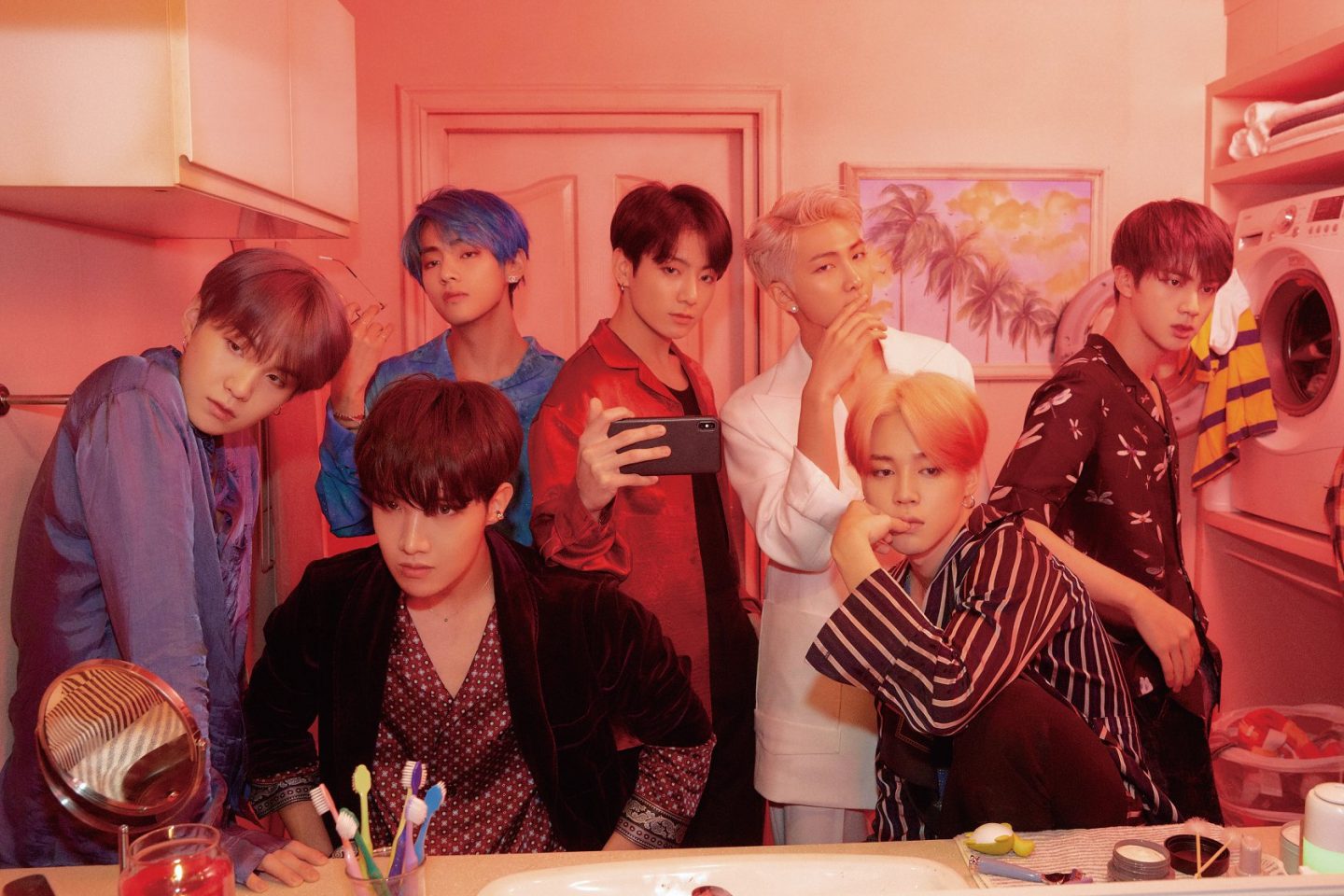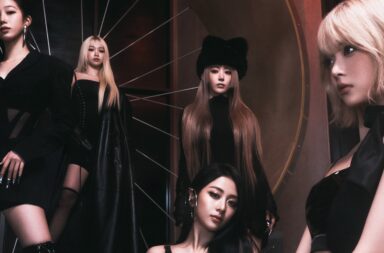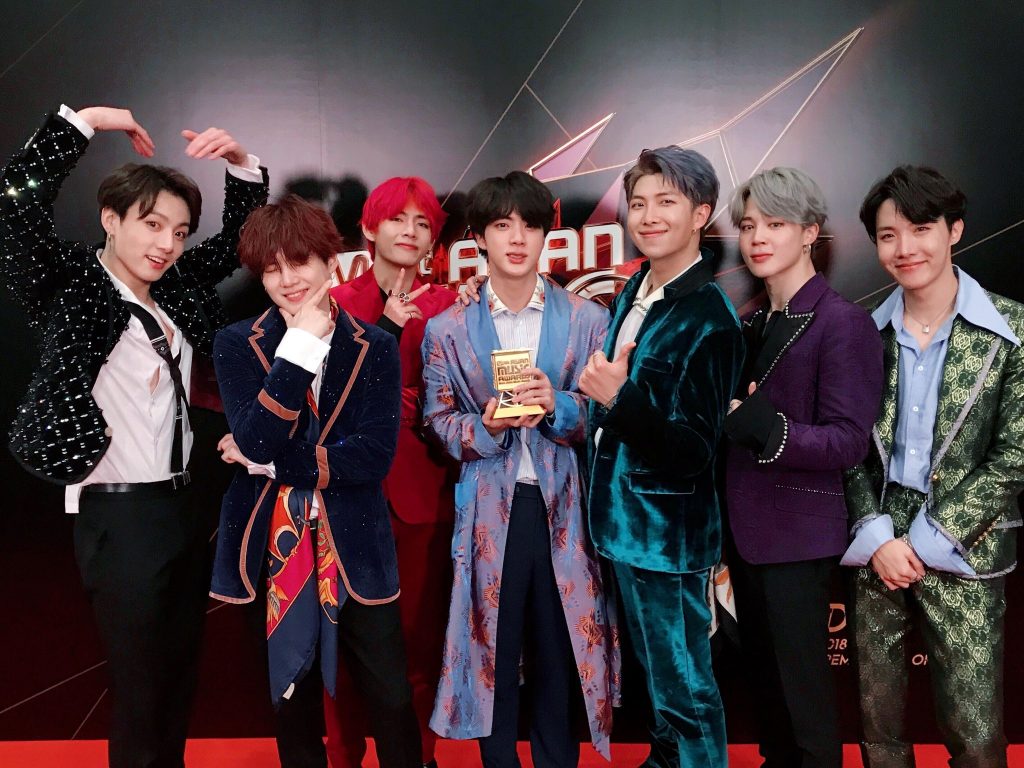
BTS has accomplished a lot over the course of their careers so far: from music show trophies and clinching daesangs to winning at the Billboard Music Awards, performing at the American Music Awards and appearing at the Grammys; it’s been a exciting, tumultuous journey for the seven members. Despite this, they’ve continuously and consciously pushed themselves to challenge their styles of music and stay true to the messages they wish to convey. Although the group started out with a largely hip-hop influenced sound, their discography has evolved so much so that it would be difficult to limit them to a single genre now.
Map of the Soul: Persona, with its seven tracks of varied genres, takes a look at BTS’ journey so far and reflects on their growth through the past six years. Where Love Yourself: Answer (and its preceding Love Yourself counterparts) was largely a message of self-love and acceptance to its listeners, Map of the Soul: Persona is mostly an album by BTS for BTS. The album explores the concept of a “persona” from Carl Jung’s model of the psyche. Simply speaking, the persona is the outward face one presents to the society. Akin to acting, it is the public face or role that one plays out.
RM’s “Intro: Persona” introduces this particular idea very well. The track — in all its theatrical, old-school hip-hop glory — kicks off the album and has the leader rapping over a sampled version of their 2014 Skool Luv Affair comeback trailer, and contrasts with the trailer in terms the depth of the lyrics presented.
The 2014 intro was shallow in its lyricism, revolving around the idea of an immature young love (“This is just an intro shouting ‘bout my whole mind and body. You know that her refusals and bad words could never stop me”). In “Intro: Persona”, RM forgoes the idea of toxic, conditional love, and raps instead about his image of himself and what he wants to offer to the world:
Persona
Who the hell am I?
I just wanna go, I just wanna fly.
I just wanna give you all the voices till I die.
I just wanna give you all the shoulders when you cry.
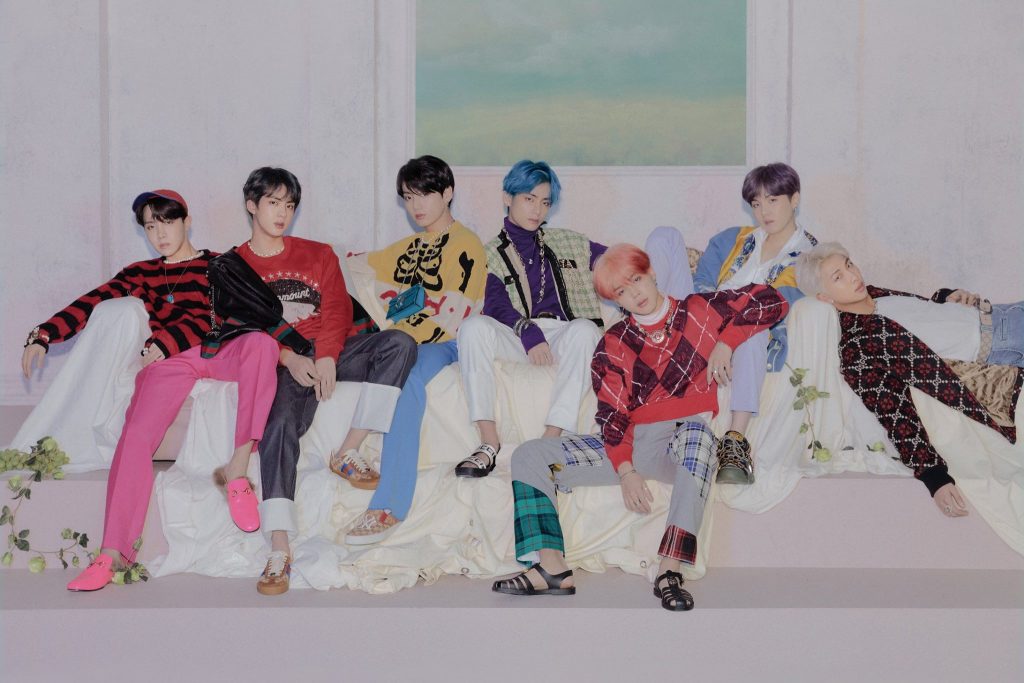
“Intro: Persona” is one of the most hard-hitting tracks on the album, second only to “Dionysus”. On the surface, “Dionysus” might seem like a simple party-rock-hip hop head-banger, if only to showcase J-hope’s incredible writing skills and Jin’s impressive high notes towards the end, but the metaphors of persona and the addiction to art-creation run deep throughout the finale track.
Dionysus was the Greek god of fertility, ritual madness, grape-harvest and winemaking, and the references to him and his thyrsus (his spear that was topped off with a pine-cone, and represents hedonism and pleasure) need to be understood to flesh out the meaning of this song.

Liking wine to art (“Well, art is also wine, I guess”), “Dionysus” revolves around the idea of getting drunk on art, and being reborn after breaking free from the restrictions of your persona. BTS, to themselves and their fans, have the personas of idols and celebrities. RM is not Namjoon, Suga is not Yoongi, V is not Taehyung, and so on. The song expertly conveys how BTS escape the confinement of their supposed public image:
Can’t you see my stacked broken thyrsus?
Now I’m born again, finally.
Thyrsus — the symbolism of hedonism — is broken by the members of BTS in “Dionysus”, conveying that they have escaped the chase for pleasure and self-indulgence, as the personas of many celebrities are depicted to be. Their new record is “a fight against oneself” to better themselves, to be “reborn as artists” and not limit themselves to the expectations of a general idol; like “Intro: Persona”, “Dionysus” also makes reference to their previous title track “Idol”, which sings, “You can call me idol. You can call me artist. Whatever you call me, I don’t care.”
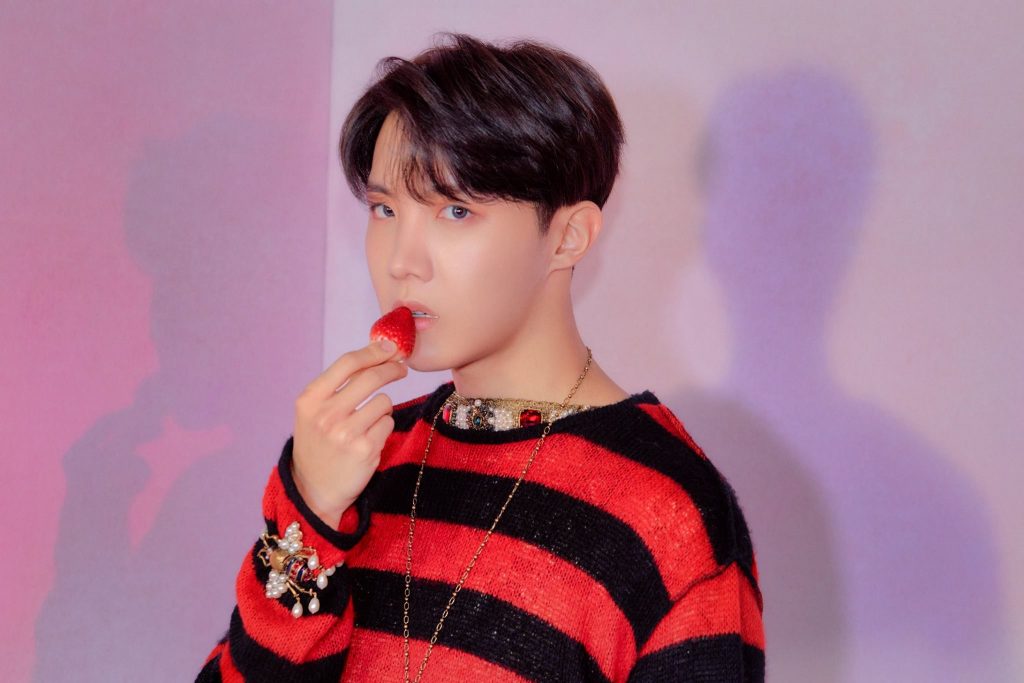
Musically, Dionysus is either a favourite or a skip on the album. The rock-inspiration, presence of heavy drum beats and guitar strums, as well as densely layered vocals and autotune may only appeal to some (like me). “Dionysus” is not the only such song on Map of the Soul: Persona. Since Persona explores various niche, targeted genres, the album as a whole can definitely charm many listeners, but loving each track may only come to those who are not picky in their music choices.
One such track is “Make It Right”. The Ed Sheeran-penned song attempts to bring the best of Sheeran and BTS into this British-pop song. It features a simple, melodic instrumental with repetitive synths and occasional percussions, with a focus on the falsetto vocals of Jungkook, Jimin, Jin, and V. Though there seems to be a heavy influence from Sheeran, and feels like it could fit right into his discography, BTS tried their best to adapt the song to have a light R&B feel rather than teetering into an acoustic ballad.
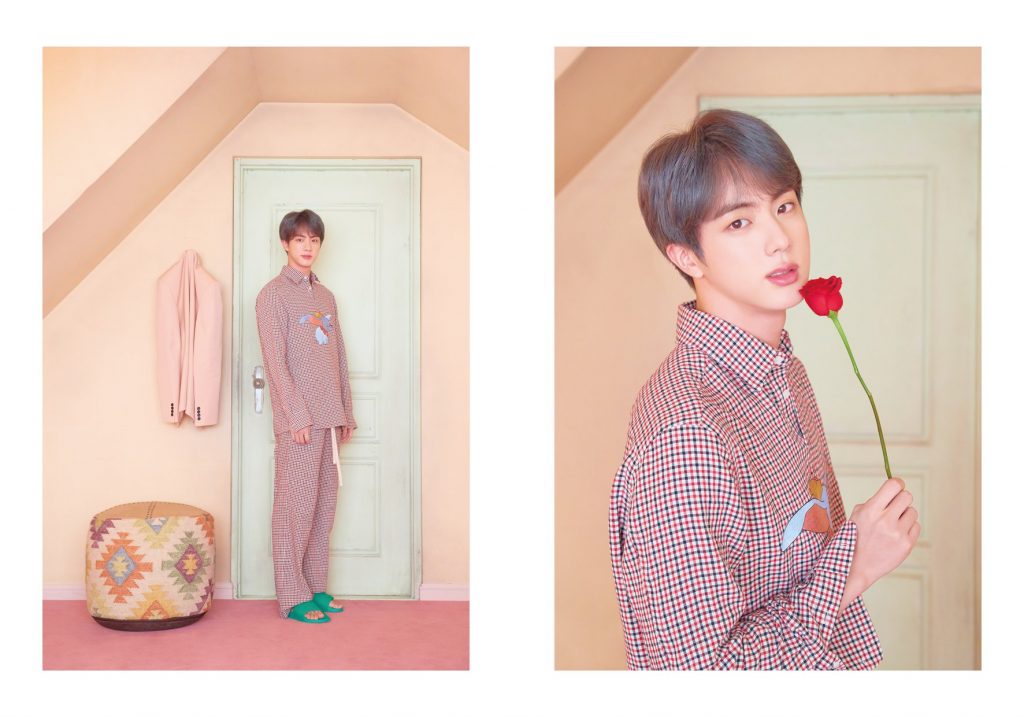
While “Make It Right” can be seen as a simple love song, RM mentioned that each song on the album was carefully chosen to revolve around the concept of “persona” during their global press conference.
With a height that’s a little taller than before,
and a voice that’s become a little more hardened than before,
now, all of it is in order to return to you.
Now, I’ll spread wide open the map (that is) named you,
my rehab.
Look at me, why can’t you recognise me?
Subtly echoing the message of RM’s Mono, the members of BTS refer to “you” as their inner selves and “me” as their personas. “Make It Right” orbits around the idea of the members trying to find their inner selves, because they’re getting too invested in their personas, unable to recognise themselves. The Jungian concept of persona mentions that the danger of giving too much authority to your persona is the inability to distinguish your self from it, leaving you with only one version of your personality.
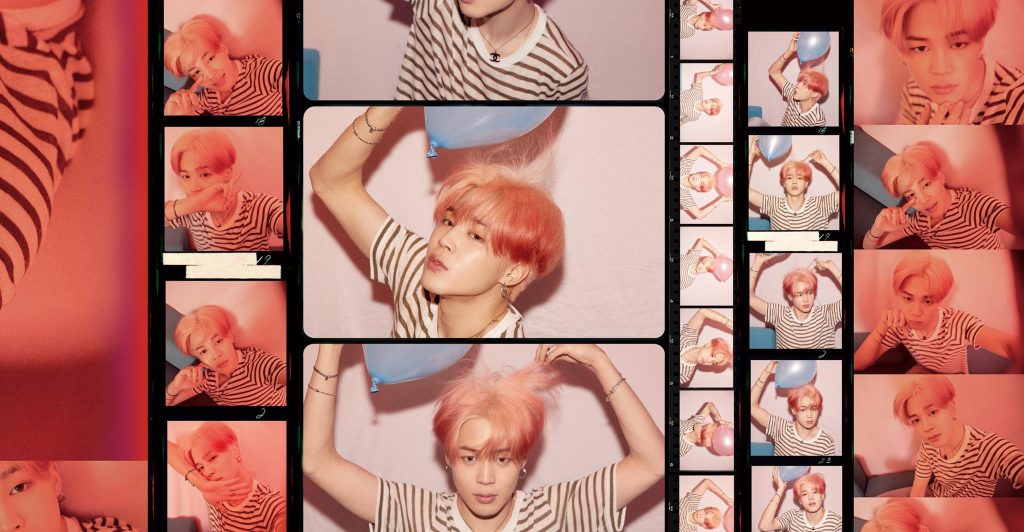
This dilemma is repeated in the R&B track, “Home”. The track is easily one of the best on Persona with an uncluttered instrumental and a beautiful contrast between the vocalists’ lower and higher registers, and features a soft rap that fits in with the vibe of the song. Like the aforementioned tracks, “Home”, too, makes a reference to a past song: “I want a big house, big car and big rings” from “No More Dream”.
In this awesome space, I’m completely pathetic.
Completely pathetic.
The world thinks we have the whole world in our hands.
Big house, big cars, big rings that I dreamt of.
Even though I have everything I wanted,
something’s still missing right now, the strange feeling,
that he who has fulfilled everything felt.
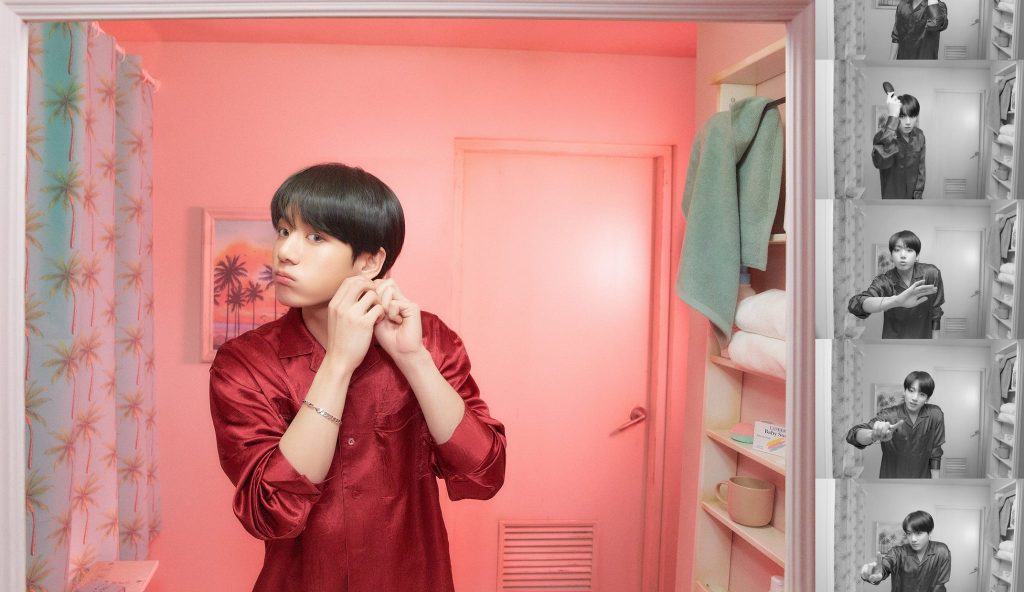
There’s a dissonance between the public image of these idols and the self they recognise within themselves. Even they themselves thought that materialistic goods would fulfil their dreams, but they’ve come to recognise the distinction between what the society and they expected of themselves, and the people they really are and what they strive for.
“Jamais Vu” and “Mikrokosmos” are slower in their tempo, and have an easy-to-listen quality to them. “Jamais Vu” introduces a unique subunit of J-Hope, Jin and Jungkook. The rapper and vocalists balance the album with the only ballad, which features staccato piano notes and light guitar strums, occasionally adding synths to make the track more engaging.
The song talks about the persona realising that they can’t hide in their public faces anymore, and that they’ll have to “deal with the real world”. Even though they wish it were all a game, they’re just another star who is imperfect. Afraid to wake up and face their real inner selves, they fear jamais vu — waking up and realising that everything familiar looks and feels foreign.

The idea of a star repeats in “Mikrokosmos”, though with a more positive connotation and hopeful instrumental. The electric-pop song bring a sense of relaxation and calm midway into the album. With its lighthearted instrumental and smooth, layered vocals, “Mikrokosmos” gets its namesake from Greek concept of microcosm. Each individual is a universe of their own, with their own stars: “shining with 7 billion lights, the 7 billion types of worlds”.
Jungian’s “persona” concept argues that one’s social success depends on having a well-functioning persona, which “Mikrokosmos” tries to convey. If you are confident in your persona, and believe in it without getting too absorbed in it, then you really are the star of your universe.
In “Boy With Luv”, BTS once again makes a reference to their past — perhaps the most obvious one — with “Boy In Luv”, and show their growth. Gone is the dark, hyper-masculine notion of love and in is the cute, pink, and sweet perception of the idea.
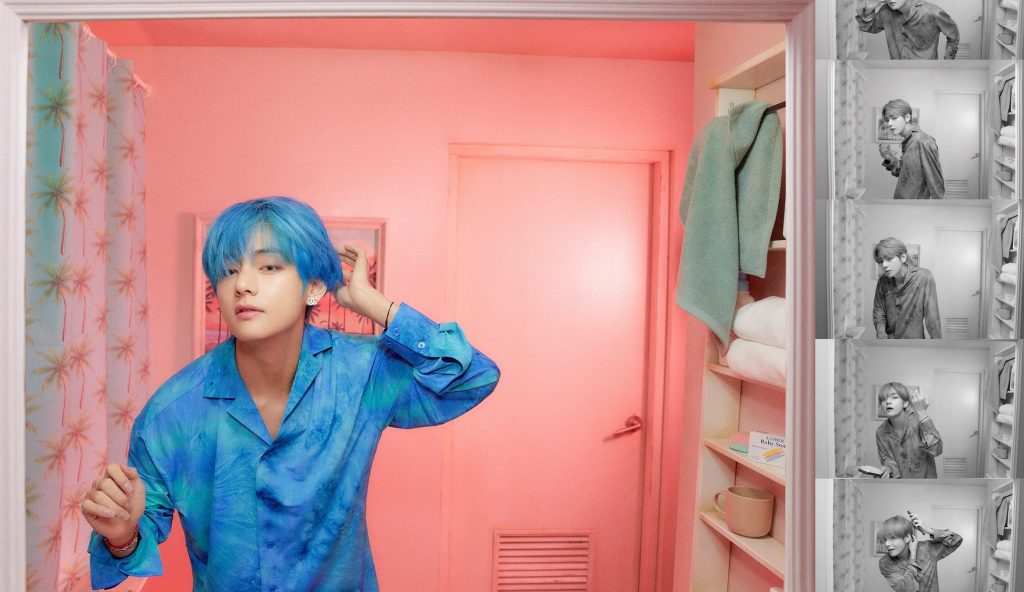
Instead of aggressively displaying their (unreciprocated) love, the members of BTS show growth by singing about wanting to know the little things about their love interest. Though there’s no explicit reference to the approach of “persona”, the attempt to correct their mindsets from their younger years shows the dedication in wanting to prove themselves as good, mature and adaptable adults. Being reborn as wholesome idols rather than following stereotypical expectations of those in the industry.
A common criticism of Map of the Soul: Persona is the lack of substance or an overarching concept that was present in The Most Beautiful Moment in Life, Wings, or the Love Yourself series. However, that largely is due to the fact that this album requires a deeper look into the songs, and the messages aren’t as prominent as BTS usually is. Moreover, with the official end of the Bangtan Universe storyline that had been ongoing for the past four years, there are few theories to tie this album back to their entire discography. Some may mourn the loss of the convoluted and clues-laden videos and highlight reels, but I, for one, am glad that BTS has officially moved on before the whole storyline got even more confusing.
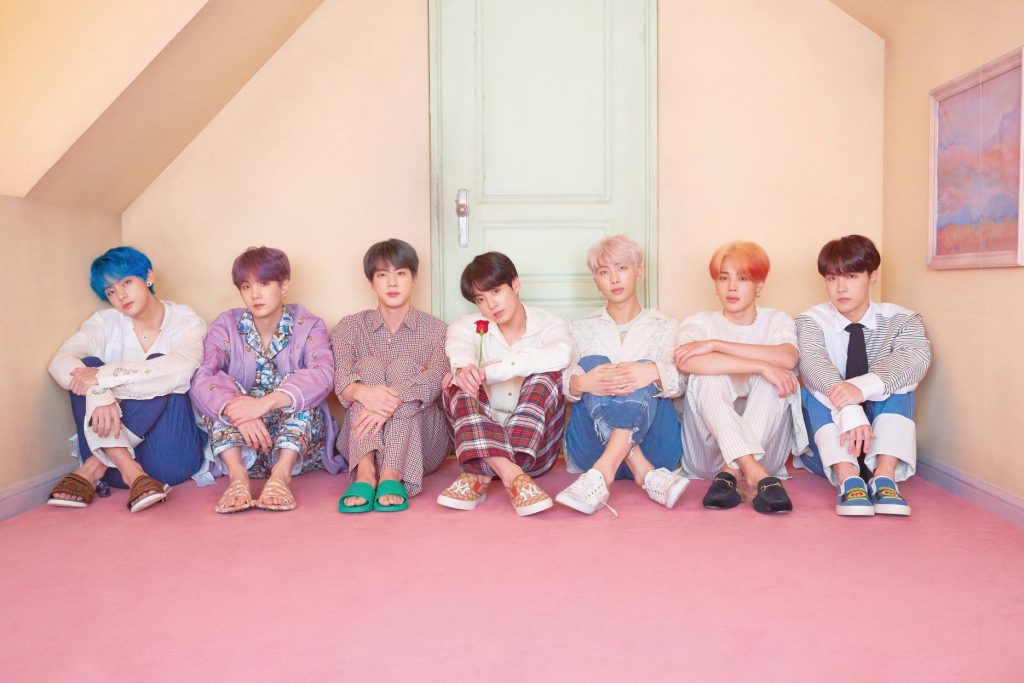
While all the songs may not interest every listener, it is commendable that the 7-membered idol group continues to experiment with their genres instead of falling into a safe-zone after gaining global popularity. Map of the Soul: Persona may not have turned out like Skool Luv Affair (as was expected after the pre-release of “Intro: Persona”), but it makes great efforts to set a solid base for BTS’ next few releases.
(YouTube [1] [2]. The Society of Analytical Psychology, Greek Gods and Goddesses. Images via: Big Hit Entertainment. Lyrics via: BTS Trans, Genius)
